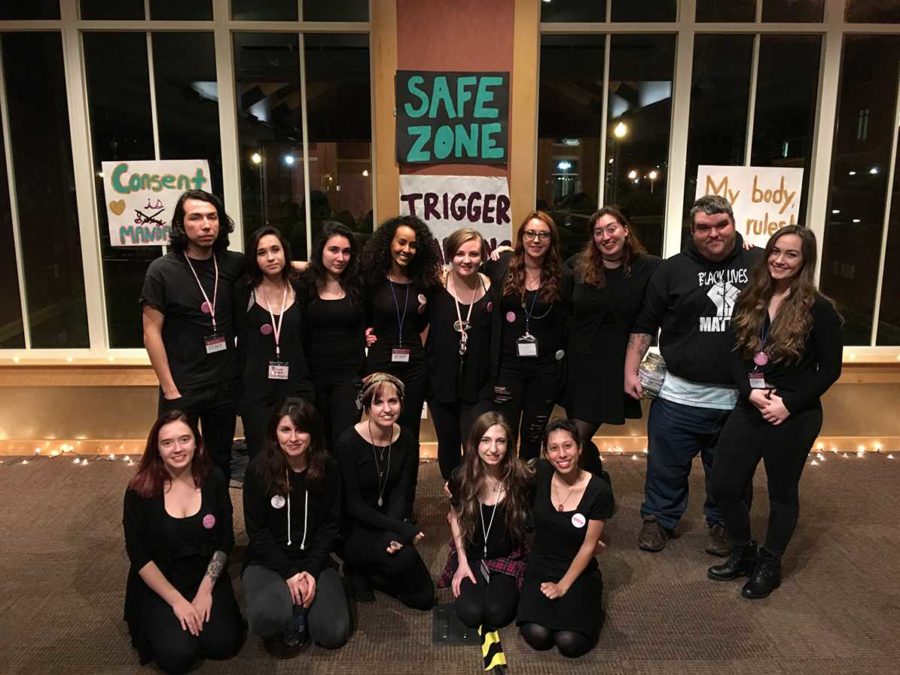To combat slut shaming and rape culture, Santa Rosa Junior College’s Feminist United club and the People Empowering Each other to Realize Success Coalition hosted Take Back the Night Part II after their successful event last semester.
Take Back the Night events started popping up around the country in the early 1960s in response to the high rate of women who were assaulted in the evening hours. Over the years, groups have come together in cities around the world to honor the survivors and victims of assault. Each event is unique to its community.
In fall 2015, Hannah Cagle, 19, founder of Feminist United and Student Government Assembly vice president of student health, kicked off her SGA term with a Take Back the Night event centered around ending violence against women.
This year’s Take Back the Night has a slightly different theme with workshops focused on slut shaming and rape culture. The crowd filled the Bertolini Student Center with a low hum and chatter between peers before the workshop began and Cagle and her colleague, Melissa Debret, 19, took the stage.
“Slut shaming is when a person who identifies as a woman is shamed or attacked based on the fact that they’re sexual or deemed sexual by a patriarchal society,” Debret said. “Using the term ‘slut’ implies more than just sexuality when said by most people. It implies she has no self respect, no morals and she is worthless.”
Cagle and Debret spoke about the media’s role in perpetuating rape culture and slut shaming and the indirect mediums of slut shaming.
“We see that with the development of technology and the evolution of social media. It’s easier than ever to participate in cyber-bullying, which includes slut-shaming,” Cagle said.
One of the indirect mediums the duo mentioned are elementary and middle school dress codes, which focus largely on young girls’ attire to avoid any potential attacks by young boys who cannot control themselves sexually.
“This objectifies young women at an early age and leads to victim blaming,” Debret said.
The remainder of the workshop covered subdivisions of rape culture, such as anti-sex positivity and victim blaming.
The audience participated in an exercise to shed light on the many ways women are subjected to victim blaming. PEERS and Feminist United members asked them to call out any of the ways they’ve heard women being blamed for the crimes committed against them, which resulted in more than 20 responses, including “she was drunk,” “she didn’t say no” and “they were dating.”
Following the workshop, guests participated in art activities, visited with the tabling agencies or sought support from student health representatives present.
The final hour of the event was open mic. Survivors and supporters were encouraged to share their stories and take back their power, which resulted in nearly an hour of deep connection and invoking storytelling in a safe space amongst peers.



